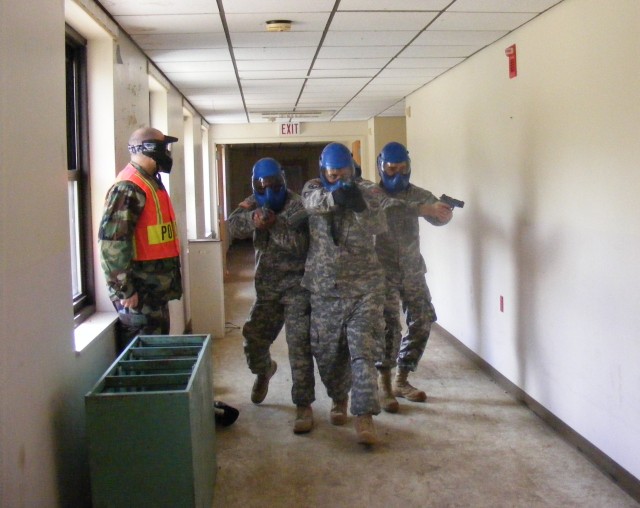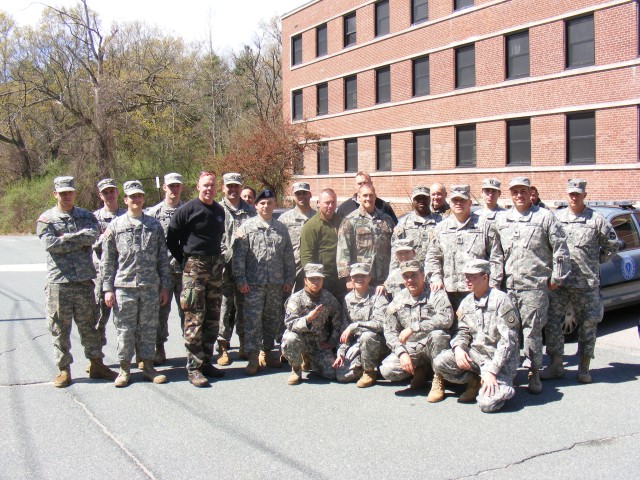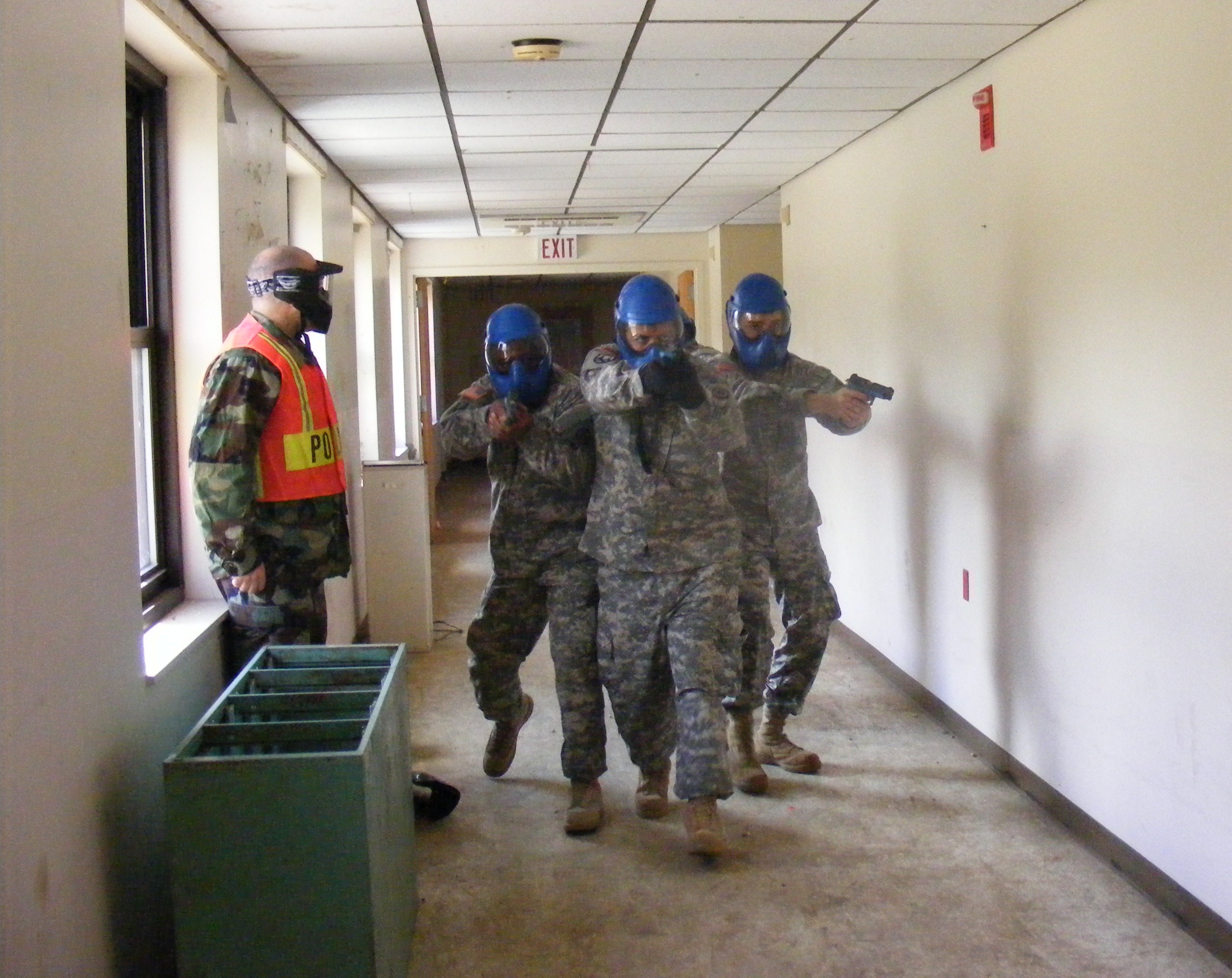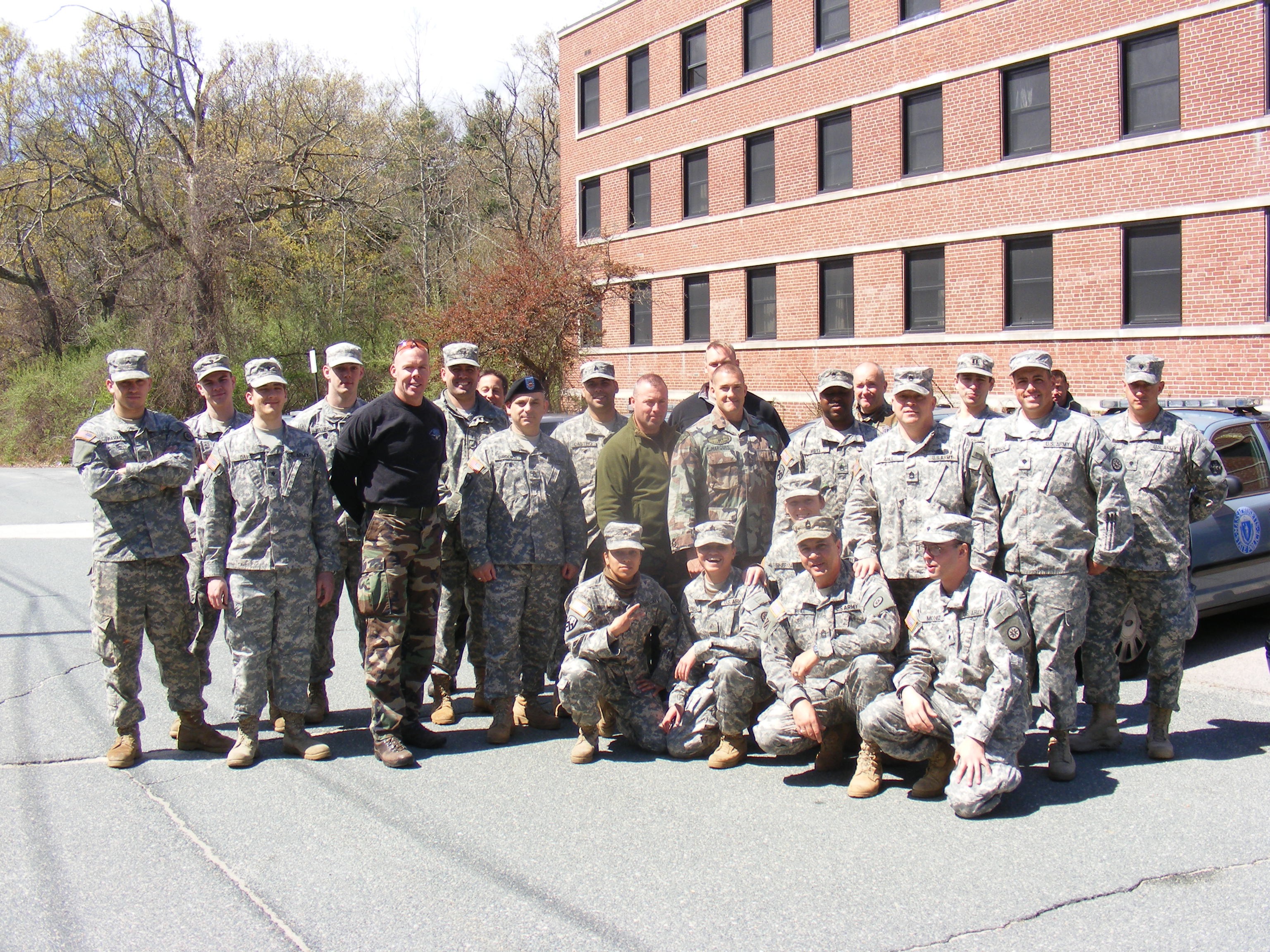TAUNTON, Mass. (April 20, 2010) - Entering abandoned buildings and reacting to threatening simulations is not atypical for State Police or Army training. But recently, the two forces teamed up to engage and take down snipers during a joint exercise known as Advanced Active Shooter training held at the Paul A. Dever school here.
Local Army Reserve Soldiers from the 801st Quartermaster Detachment attended the one-day training which is run by members of the Massachusetts State Police Special Tactical Operations team, a specialized team within the Massachusetts State Police Department. The training is designed to familiarize participants with a variety of simulated hostile scenarios dealing with one or more active gunmen.
"We are a quartermaster company...but you can end up in any situation at any particular time," said Mr. John Bourgault, unit administrator at the 801st QM Det.
The Advanced Active Shooter training was designed with patrol officers, local, state and federal agencies in mind. After working with Soldiers from the 801st, however, the STOP team was able to modify the program to better meet the Soldiers specific military training needs, said Staff Sgt. Badoucarr Mbye, a Soldier with the 801st who helped to coordinate the training event.
The 801st, an Army Reserve unit under the 316th Expeditionary Sustainment Command, Coraopolis, Pa., is a petroleum company responsible for the distribution and quality of fuel at Defense Petroleum Supply sites across the country. Reserve weekends are opportunities for the Soldiers to become proficient in their military occupations as well as strengthen their overall warrior skills. The Active Shooter training was a prime opportunity to work in a joint environment and review tactics such as clearing rooms or securing a building or checkpoint.
Mbye reiterated the need for this particular training which helps to keep all of the Soldiers' skills sharp- even those who are seasoned veterans, said Mbye.
"We're quartermaster Soldiers, but we're also a liaison company. And a situation might arise that may require us to secure an area of clear a room," said Mbye.
By the end of the training the Soldiers were anxious to return for additional, follow-up training. This was the end of phase I, there are two additional phases of training offered.
From clearing rooms to reacting to hostile situations, the training was an opportunity for the Soldiers to work with a civilian force, gain additional training, and better prepare themselves for hostile situations...should they arise.




Social Sharing